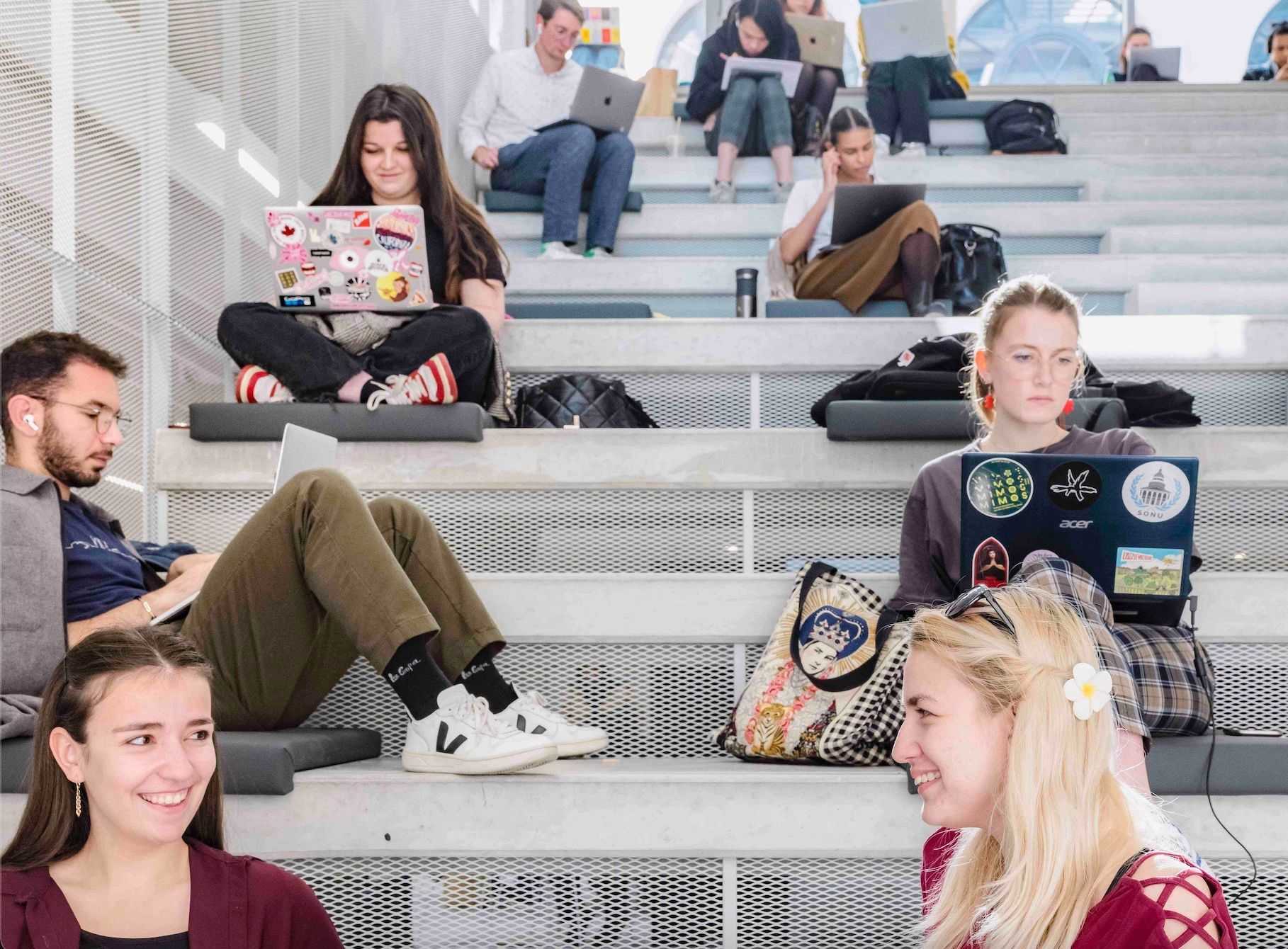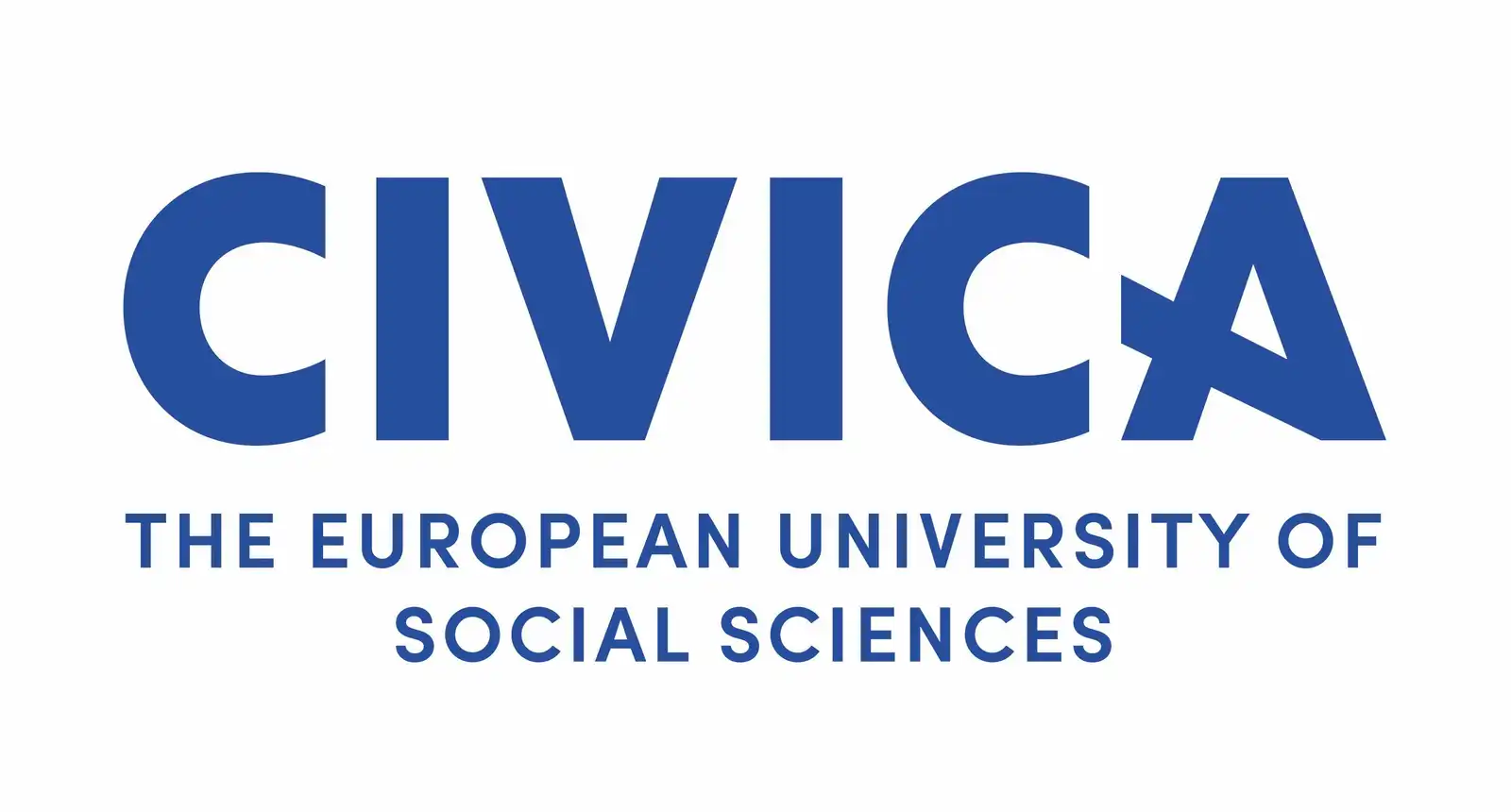Home>Sciences Po in Europe: how to build a common digital campus, library and student degree?

05.04.2023
Sciences Po in Europe: how to build a common digital campus, library and student degree?
Sciences Po has been a founding member of CIVICA, the European alliance of universities on social sciences, since 2019. As such, our employees take part in building connections with the 9 other leading European partner universities so that the alliance can live up to our expectations and offer quality opportunities to our students, professors and researchers. What can CIVICA offer to our students – at all levels – in regards to student mobility, digital campus and shared European library?
Promoting student mobility in Europe
CIVICA aims to offer various academic programmes, including CIVICA Degree, Short Mobility, and Dual Degree programmes.
Exchange and Short Mobility programmes to broaden your horizons
All CIVICA partners are linked through exchange agreements which offer CIVICA students a seamless study exchange experience with another CIVICA partner, typically for one semester or one academic year, entirely recognised for their individual study programmes. Short Mobility programmes are designed for students who want to study abroad for a shorter period, in the context of Summer School programmes for example. These programmes are offered by any of the CIVICA partner universities and allow students to gain an international experience, learn new languages, and broaden their academic and cultural horizons.
Dual Degree programmes to boost your career
Dual Degree programmes are collaborative academic programs between two CIVICA partner universities that allow students to obtain two degrees from two different universities. Dual Degree programs are typically offered at the graduate level and can last up to two years. Students in Dual Degree programs typically spend one year at each of the partner universities, and upon completion, they receive two separate degrees from the two institutions. These programs provide students with a unique opportunity to gain international experience, network with scholars and professionals from different cultures and backgrounds, and enhance their career prospects.
Coming soon: the CIVICA European Degree
The creation of a CIVICA Degree programme will consist in a full-time programme that offers students an interdisciplinary education in social sciences. It will provide students with new opportunities in a highly mobile study context, in order to gain top notch European expertise in their chosen field of study.
Building a high quality digital campus
Sciences Po and CIVICA are implementing a strong digital campus for their communities: my.civica.eu. This secure login-based platform can be accessed by all members of the ten partner universities through their home institution’s credentials. It already includes four main sections.
The course catalog to enroll in CIVICA’s courses
CIVICA’s course catalog is a list of the courses offered by the CIVICA alliance at all cycle levels: Engage courses (Bachelor), multicampus and joint courses (Master) and skills courses (PhD and Researchers).
A social media to connect across borders
CIVICA Social (Whaller) is a dedicated section providing useful information on courses users are enrolled in and a collaborative platform.
A PhD Clinic to foster research opportunities
The PhD Clinic is an unique arena in which my.civica.eu users can identify and contact faculty members at CIVICA partner universities whose expertise is relevant to their respective dissertation topics.
Additional resources shared by all partners
The additional resources section is a pool of digital content developed by CIVICA partners (such as MOOCs, podcasts, recorded events or interviews) that can be used by the CIVICA community for independent learning, research activities or used by instructors during lectures/sessions/seminars with students.
The my.civica.eu digital team is set on pursuing the building of the digital campus by implementing pedagogical innovation, promoting virtual mobility and providing a constant enlarging scope of services such as a common library platform to aggregate the services and resources offered by the libraries across the alliance.
A library for all
The libraries' ambition is to establish the CIVICA Library as a physical and virtual campus venue. By ensuring equal access to digital information resources and establishing a common frame of reference when students come to any of the libraries, the library group aims to contribute to student mobility.
Providing valuable training to students
The library project will also enhance students' opportunities by providing valuable services such as information literacy training. Training is already available to PhD students to help them integrate Open Science practices into their work.
Increased educational resources
Open educational resources will be widely promoted throughout CIVICA for all audiences, and teachers will benefit from an increased number of resources to help them prepare their courses and their reading lists.
A network of dedicated librarians
All this work will be done by a network of dedicated librarians who will also conduct regular surveys to better understand European students' practices and information literacy.
Libraries are one of the pillars of the CIVICA alliance projects. They provide excellent documentary resources and a common high-quality welcoming and learning environment for students on mobility. They also have rich collections of cultural artefacts that make each of them attractive to the students who come to discover them.
Marc Martinez, Sciences Po Library Director
MORE INFORMATION:



(credits: Philippe Chancel / Sciences Po)